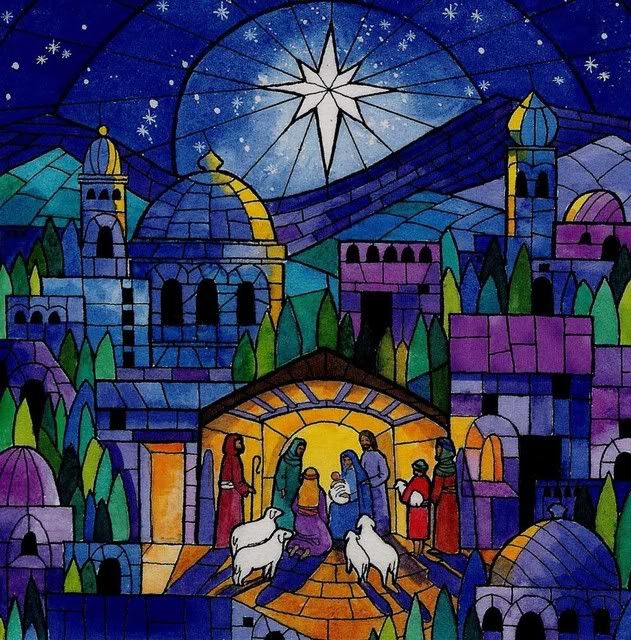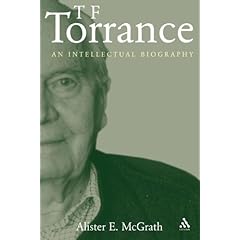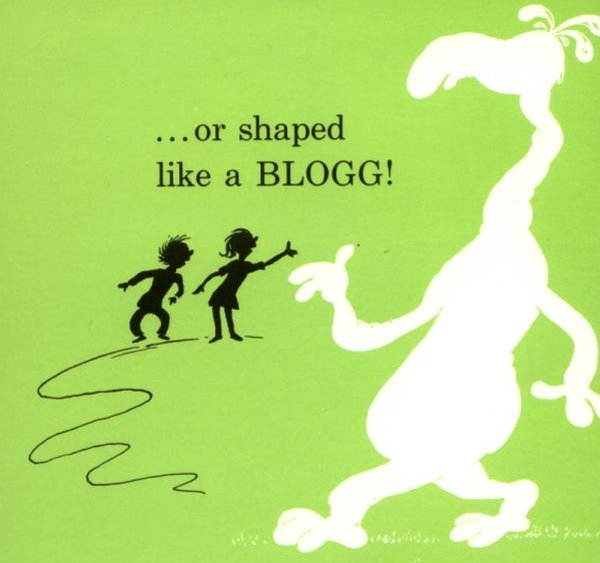I meant to post this list around my birthday but here it is. I've decided on my favourite fiction reads of all time. If I've written about it before there is a link. All of these books in some way or another provided me a great adventure, a spark of insight, and/or a new lease on life. I've ranked them, of course. It is more fun that way. I hope to add one every year, and perhaps change the list slightly over time, but it will be very hard to dislodge any of the top spots
1.
Perelandra - CS LewisMind-blowing science fiction with aesthetic beauty, adventure, and a lot to say.
2.
The Lord of the Rings - JRR Tolkein Epic, of course. Even after seeing the movies there is nothing that compares with the sense of fellowship and fear developed in the book. And the ending of
The Two Towers is unmatched.
3.
The Man Who Was Thursday: A Nightmare - GK Chesterton I've said plenty about this book already.Part comedy, part adventure, part spy novel, part absurd, part metaphysical whodunit, part Pilgrim's Regress, and a dash of Dr. Strangelove.
4.
To Kill A Mockingbird - Harper LeeThis was the first bit of required reading in school that I remember absolutely digesting and loving. It starts out as an innocent story of a brother and a sister and their neighbourhood friend and stays the same story except for the "innocent" part. Along with them, the reader is re-introduced to the societal evils of slavery, racism, outcasts, mob mentality, neighbourhood gossip, and bad politics. Somehow these are seen most truly through a child's eyes. And yet the story has a hero too. I am not sure there are any more recognizable characters in American fiction than Atticus Finch, Jem, Dell, and Boo Radley. This is a must read and if it weren't for the dang Inklings would be number one on my list perhaps the rest of my life.
5.
The Count of Monte Cristo - Alexandre DumasBest adventure story ever. Bar none.
6.
The Outsiders - Susan HintonThis story follows the lives of some high school gang members in the 50s in such an empathetic and honest way. I don't know if I looked at people the same again after reading this book. Somehow it showed me that everyone's a person, no matter what. These are the guys I would have been afraid of growing up. But Ponyboy, Sodapop, Dally, Johnny, Cherry and the rest are stripped bare in front of the reader in such an authentic and yet understated fashion that by the end you are deeply saddened by events that you would otherwise brush over in the newspaper.
7.
The Brothers Karamazov - Fyodor Dostoevsky A highly regarded classic novel, and for good reason. I was enraptured by it.
8.
The Grapes of Wrath - John SteinbeckAnother all-American great which just shows you the world you live in, and where it has come from.
9.
Voyage of the Dawn Treader - CS LewisTwo CS Lewis books in my top 10? Guess so. This is my favourite of the Chronicles of Narnia, by far. My Dad's favourite too. Can't wait to read it to my boys. My oldest is almost ready.
10.
Lord of the Flies - William Golding
Golding's
Lord of the Flies is just one of those classic stories that had to be told. There have been many imitators in one way or another but his is the masterpiece. The innocence and peril of Ralph, Piggy and Jack and the boys stranded on this island are writ large, and crumble through the fingers like sand on the beach. Simon is the quintessential Christ-figure, and the startling conclusion just sticks with you for good.
11.
Out of the Silent Planet - CS LewisPart one of Lewis' science fiction which climaxes at Perelandra, but gets a heck of a kick start here. I love that these stories are basically about Lewis. And Ransom: What a great name!
12.
Manalive - GK Chesterton This is a drastically underrated story, perhaps because it is so quirky and weird. But I've read it a few times now and it never ceases to surprise and inspire me.
13.
Life of Pi - Yann Martel Martel's recent masterpiece debuts on my list after having only read it a couple months ago. Perhaps I'm still a bit caught up in it, but I don't think so. It was that good.
14.
Ordinary People - Judith Guest
Even though I saw the movie before reading it, this book still made an impact on me. I read it during a bout of semi-depression and so resonated with the character that I felt like he helped me wade through some deep waters. Besides that, I think this is just a very well told character novel which provides a window into the mind and soul of a young person dealing with death, divorce, guilt, family dynamic, friendship, and the struggle for a sense of peace and identity. This is one of those examples of where the story says it better than any psychology text or book review ever could. You just have to read the story.
15.
Misery - Stephen King Just plain-old freaked me out of my skin. And it did so without poltergeists or bloody zombies or any cheap horror-flick tricks like that.
16.
The Trial - Franz KafkaKafka's
The Trial is at the forefront of the genre of literature of the absurd. In this novel Joseph K. runs up against the unrelenting craziness of everyone and everything around him and, though he tries to keep his head, simply can not stay sane. Though Kafka could probably have used a few moments release from his crippling doubt and despair, he has offered us all a reality check through his writing that we'd be silly to ignore, especially in a time when it is just so easy to escape into our sheltered and foolish optimisms. But I digress. This novel is a wild and even frustrating read, but it is so in a fantastic way. The parable of the gatekeeper and the encounter with the priest are two very memorable moments in this adventure in absurdity.
17.
The Great Divorce - CS Lewis More great stuff from Lewis. Of all the attempts this is the best and most artful peak into heaven that has been written.
18.
The Kite Runner - Khaled HosseiniAn insight into war-torn Afghanistan through the eyes of one its more fortunate children. The dynamic between this boy and his friend is an enjoyable read on its own, but then when tragedy strikes and the reader follows one character into the ramifications of the rest of his life and the search for redemption the novel takes on a timeless quality and is nearly impossible to put down. Through this book I felt like I experienced another culture and found some common ground in the world, but also came to appreciate the many things which still tear apart at us.
19.
The Power and the Glory - Graham GreeneIt took me awhile to get into this book, and I'm not sure if that's a flaw with the book or just the circumstances of my reading it. But once it got going this story of a traveling priest on the lam in the villages of rural Mexico took on a life of its own. This is another story of an outcast, told from the inside, and the things he encounters and the attitude he maintains really cut to the quick. He is not idealized but is vilified throughout the novel (by no one more than himself)---and yet he is a heroic figure. There is a lot going on in this story and I look forward to someday giving it a second read. Graham Greene is a masterful story teller.
20.
The Magician's Nephew - CS LewisMy second favourite of the Narnia Chronicles. Should have known the movies were doomed when the started with
Wardrobe rather than this one. As a youngster the creation scene and the flying horse and the apples and the rings just blew me away.
21.
Revelation - Flannery O'ConnorThis is actually a short story about a woman in a waiting room at the doctor's office which ends with her having an epiphany in a pig barn. Sounds unremarkable except for the changes wrought on the character, the stereotypes it exposes, the finger it points at the reader, and the messy kind of redemption it portrays.
22.
Fever Pitch - Nick HornbyAnyone who is a sports fan or who knows and doesn't understand a sports fan needs to read this book. Not only does it explain the inner life of the die-hard fan but it is a really fun read as well. Through it we get to experience the thrill of victory, the devastation of defeat, the obsession over players, the emotional investment of getting wrapped up in a team's history, and both the the fall-out and the inspiration that all of this has in a person's life. Beyond this, the story is also a great experience of modern London and a wonderful journey through the life of an average young English boy.
23.
The Idiot - Fyodor DostoevskyThe idiot is the novel's Christ figure. Enough said.
24.
Frankenstein - Mary ShelleyPicturing Boris Karloff with bolts in his neck I was not prepared for the literary genius of this novel. I also thought it would be more frightening than it was. Instead it was a gripping tale of a Doctor's turmoil and a new creature's struggle to find his way in the world. There are a lot of ramifications that could be explored here and it would be awesome to read this one in a book club. Reading it is like peeling away layers of an onion, not only in depth of theme but in narrative as well. It is a story within a story within a story within a story. Really awesome book.
25.
The Hobbit - JRR TolkeinJust wonderful.
26.
The Horse and His Boy - CS LewisFor some reason I can still feel my eyes widening as I imagine my Mom reading this to me at my bedside many moons ago.
27.
And Then There Were None - Agatha ChristieI'm a sucker for a whodunit and I'm not sure anyone has ever bested Christie at the genre. I love the idea of a bunch of people stuck in a house having to figure something out. This is a classic.
28.
Nightfall - Isaac AsimovA planet with six suns is preparing for its first nightfall in 2000 years. From what they can tell things did not go so well for society the last time. Will anyone survive the chaos of darkness in a place where it has never been known? (I should write the book jacket shouldn't I?)
29.
Crime and Punishment - Fyodor DostoevskyThis is a pretty troubling story of a young man, his temptation, and his guilt. Maybe not everyone's idea of beach reading, but really worthwhile. Dostoevsky is an absolute
master at developing a character and a story through dialogue, and at getting us to recognize our own thoughts and attitudes in those character's minds.
30.
The Son of Laughter - Fredrick BuechnerBuechner gives us the biblical story of Jacob in a not-quite-irreverent but certainly-not-glossy way. Through it we learn also of Isaac and his troubled past, covered by laughter. We read of the God known at first as "The Fear" and we get to see the patriarchs as people like us. Really a splendid piece of work.
31.
The Catcher in the Rye - JD SalingerWhen I was reading this I was a pastor at the time and a piece of mail came to the church asking us to help get this book banned in school. I was a bit torn. I don't think it is a book for kids, but thought the point of the book was kind of being lost. Some rough language in it, but it has the same sort of effect as
The Outsiders. Maybe I'm a sucker for these empathy raisers, but I love a story that doesn't necessarily deny the stereotype entirely but does cut through it and lets me see people where I might not have before.
32.
The Poisonwood Bible - Barbara KingsolverColonialism in Africa, well told in a unique fashion through the eyes of four young American missionary girls.
33.
A Good Man is Hard to Find - Flannery O'ConnorAnother of Flannery's short stories which leaves you dead in your tracks. No reader emerges unscathed by her gracious sword.














.jpg) This story also opens your eyes to the normality of famous people and to the dangers of mixing insecurity, family baggage, a fast rise to stardom, and addiction. As a wake up call to the death-toll of addiction alone it is a worthy read. As an insight into our common human struggles it is a reminder to be there for each other. It is a deep and compelling story told in a very simple interview style with people who knew him and, of course, it is laced with a lot of humour. There are not many books I can recommend more highly than this one.
This story also opens your eyes to the normality of famous people and to the dangers of mixing insecurity, family baggage, a fast rise to stardom, and addiction. As a wake up call to the death-toll of addiction alone it is a worthy read. As an insight into our common human struggles it is a reminder to be there for each other. It is a deep and compelling story told in a very simple interview style with people who knew him and, of course, it is laced with a lot of humour. There are not many books I can recommend more highly than this one.



